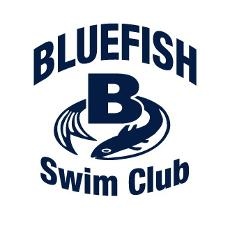Bluefish Swim Club: Electronic Communication Policy
PURPOSE
Bluefish Swim Club recognizes the prevalence of electronic communication and social media in today’s world. Many of our swimmers use these means as their primary method of communication. While we acknowledge the value of these methods of communication, we also realize that there are associated risks that must be considered when adults use these methods to communicate with minors.
GENERAL CONTENT
All communications between a coach or other adult and an athlete must be professional in nature and for the purpose of communicating information about team activities. The content and intent of all electronic communications must adhere to the USA Swimming Code of Conduct regarding Athlete Protection.
For example, as with any communication with an athlete, electronic communication should not contain or relate to any of the following:
- drugs or alcohol use;
- sexually oriented conversation; sexually explicit language; sexual activity
- the adult’s personal life , social activities, relationship or family issues, or personal problems; and
- inappropriate or sexually explicit pictures
- Note: Any communication concerning an athlete's personal life, social activities, relationship or family issues or personal problems must be transparent, accessible and professional.
Whether one is an athlete, coach, board member or parent, the guiding principle to always use in communication is to ask: “Is this communication something that someone else would find appropriate or acceptable in a face‐to‐face meeting?” or “Is this something you would be comfortable saying out loud to the intended recipient of your communication in front of the intended recipient’s parents, the coaching staff, the board, or other athletes?”
With respect to electronic communications, a simple test that can be used in most cases is whether the electronic communication with swimmers is Transparent, Accessible and Professional.
Transparent: All electronic communication between coaches and athletes should be transparent. Your communication should not only be clear and direct, but also free of hidden meanings, innuendo and expectations.
Accessible: All electronic communication between coaches and athletes should be considered a matter of record and part of the Club’s records. Whenever possible, include another coach or parent in the communication so that there is no question regarding accessibility.
Professional: All electronic communication between a coach and an athlete should be conducted professionally as a representative of the Club. This includes word choices, tone, grammar, and subject matter that model the standards and integrity of a staff member.
If your communication meets all three of the T.A.P. criteria, then it is likely your method of communication with athletes will be appropriate.
FACEBOOK, INSTAGRAM, TWITTER, AND SIMILAR SITES & APPLICATIONS
All postings should follow the standards described above for all electronic communication. Coaches may accept requests (e.g., friend or follower requests) from athletes as long as (1) all athletes are treated equally and (2) no content is made available that does not fit the standards described above for all electronic communication. Coaches may choose to friend or follow athletes via applications such as facebook, instragram and twitter, as this enables coaches to be aware of potentially relevant information that can be helpful in minimizing bullying.
It is recommended that coaches and athletes communicate via email and texting when electronic communication is needed, and not through alternative sites and applications such as facebook or twitter.
TEXTING
Subject to the general guidelines outined above, texting is allowed between coaches and athletes, but shall be used only for the purpose of communicating information directly related to team activities.
Athletes and coaches may use email to communicate regarding team activities and subject to the general electronic communication guidelines outlined above. A parent can request that email communications to an athlete include a cc to the parent.
REQUEST TO DISCONTINUE ALL ELECTRONIC COMMUNICATIONS
The parents or guardians of an athlete may request in writing that their child not be contacted by coaches through any form of electronic communication.






